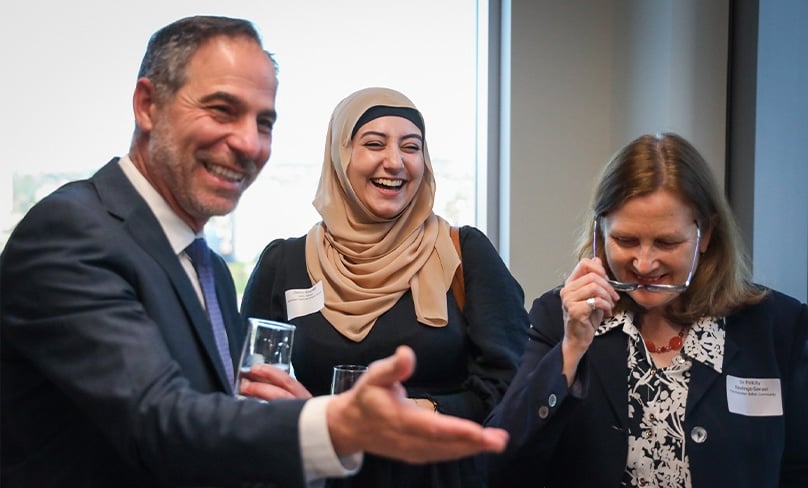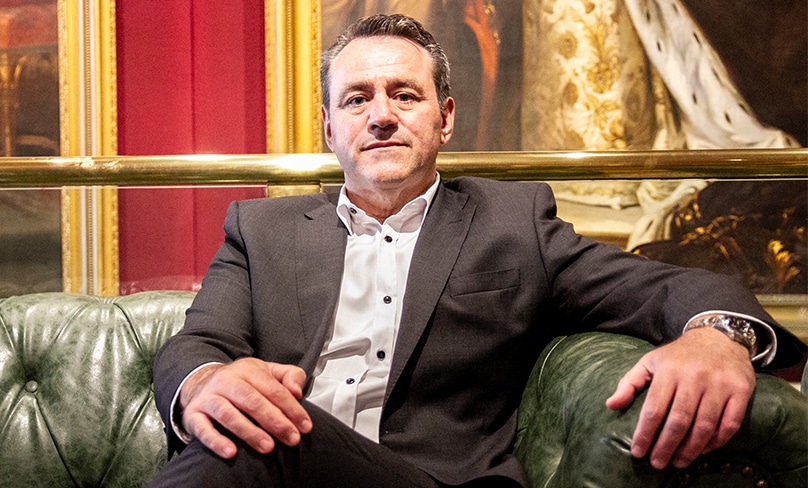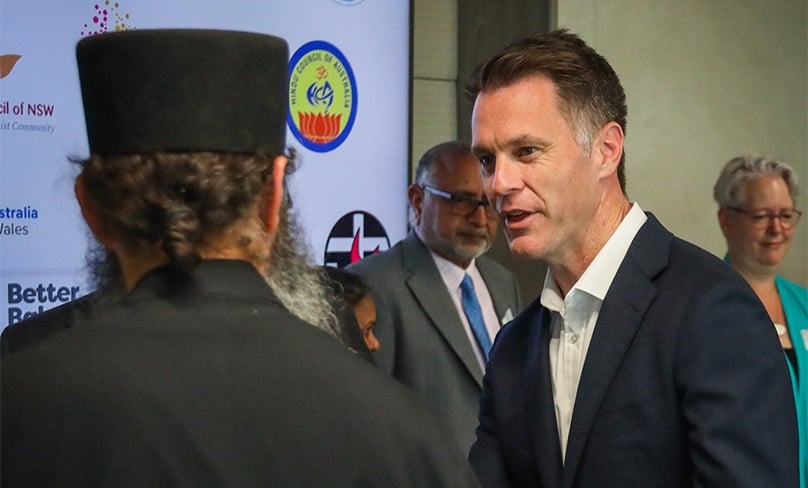
Opposition leader Chris Minns promises Faith Affairs Council to report directly to Minister in new approach for religious relations in NSW
NSW Labor has promised to establish a Faith Affairs Council that will report directly to the Minister for Multiculturalism if elected in March next year, with a broad remit to advise government on religious communities’ issues and priorities.
Opposition Leader Chris Minns made the announcement during a dinner with faith leaders on 7 November.
“I have asked my colleague Steve Kamper to act as a single point of contact for the faith community,” Mr Minns said.
“This is important because it gives religious organisations a strong advocate within a Minns Labor Government and our decision making process.
“Through Steve Kamper, faith organisations will be able to raise issues and concerns, and he will be able to represent your views across the wider government.”
“It provides an adequate definition there to say ‘that’s your minister’ through the council.”
Labor’s NSW Faith Affairs Council would act as a formal channel for faith bodies to give feedback and advice to government.
Although the Faith Affairs Council will report to Mr Kamper, Labor has not as yet announced a change to the title of the Multiculturalism ministry to incorporate religious affairs.
“We announced there will be a direct connection through the council to the Minister,” Mr Kamper told The Catholic Weekly.
“It provides an adequate definition there to say ‘that’s your minister’ through the council. That’s the positive message we’re sending.”
Labor’s Faith Affairs Council would differ from the Coalition’s Religious Communities Advisory Council in several respects, Mr Minns said.

Council if Labor wins government at the next state election. Photo: Adam Wesselinoff
Labor will appoint religious organisations to the council, which would then nominate their own representatives and elect their own chair. The council would report directly to Mr Kamper.
The Coalition Government’s Religious Communities Advisory Council, announced in June, is a standing committee of Multicultural NSW and shares a chair with the Multicultural NSW Advisory Board.
Multicultural NSW has asked prospective members to self-nominate by 23 November.
Mr Kamper said he sees the Faith Affairs Council as a “solutions warehouse on faith-based issues”. He said it will have a broad remit to provide feedback and advice on a wide range of issues, including cemeteries, objections to euthanasia/voluntary assisted dying, and religious discrimination.
The council could also be a way for religious communities to propose amendments to legislation in a co-ordinated way, including on matters like voluntary assisted dying.
“The Coalition has funded its own Advisory Council with $28 million in the June budget, especially for the expansion of language services and community cultural events.”
“If there are issues, even when we had the Israel Folau thing – if you had the council around, you could work through common messaging, how we look to develop policy moving forward as well,” Mr Kamper said.
Mr Minns flagged that the Council will also identify opportunities for government to partner with religious organisations for community programs.
Labor is yet to attach a dollar figure to the new initiative.
The Coalition has funded its own Advisory Council with $28 million in the June budget, especially for the expansion of language services and community cultural events.
Mr Kamper told The Catholic Weekly the council would have a role in overseeing the success of any such initiatives, and that funding would be based on need.

“Additional funding for chaplaincy, specific needs of specific communities, parishes, programs, but moreso community-based programs running through places of worship,” he said.
He also suggested chaplaincies would be brought within his portfolio in the next election as part of the initiative.
“The chaplaincy environment now is all over the place. Bringing it all into multiculturalism, having its place there, having its funding all arranged through one ministry – it just makes sense,” Mr Kamper said.
Labor’s proposal was brought about in response to the solidarity between religious communities during the COVID-19 pandemic, when the demand on charities was high and places of worship were locked down.
Mr Kamper was an advocate for travel exemptions for religious ministers during the COVID-19 lockdowns, and met with multifaith delegations throughout the pandemic.
“Even if you’re not a person of faith it’s important we continue as a party to respect that big part of our community, that greater part of our community that have faith …”
“All of them were in furious agreement that they wanted this type of framework,” he said.
“Why do we have to wait for a crisis to have such a good operating model, when we could have that during normal times and work through issues that have been hanging around?”
He also wants to rectify the “feeling among the faith communities that the Labor Party doesn’t represent them anymore, doesn’t respect people of faith”.
“Faith is a personal thing, but even if you’re not a person of faith it’s important we continue as a party to respect that big part of our community, that greater part of our community that have faith, have some conviction about them, don’t want to be treated as if we have no voice because we’re a part of a faith community,” Mr Kamper said.
“The argument that Church and State should be separate, we’re OK with that. But it doesn’t mean that people of faith don’t have a voice and shouldn’t belong within a conversation.”
